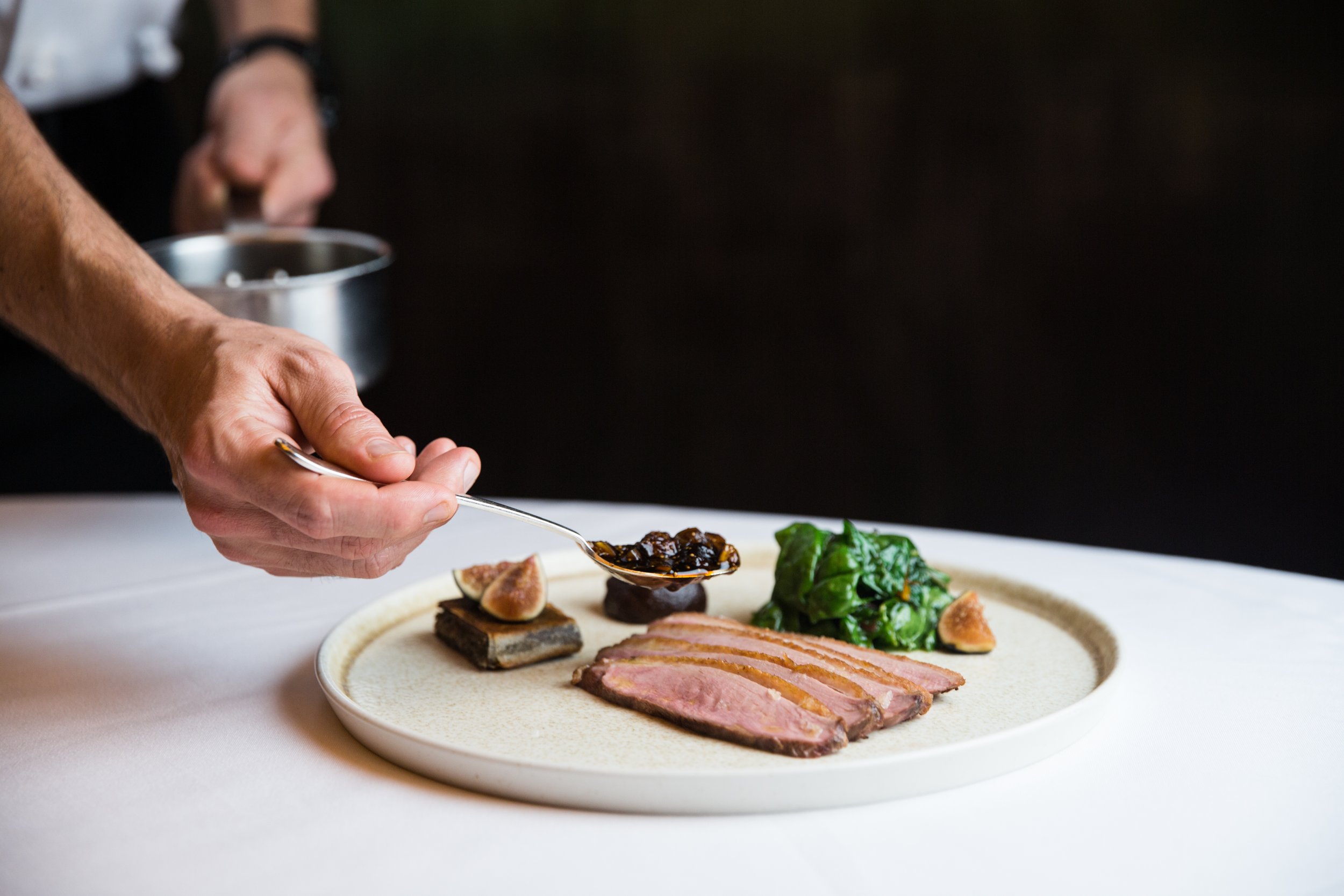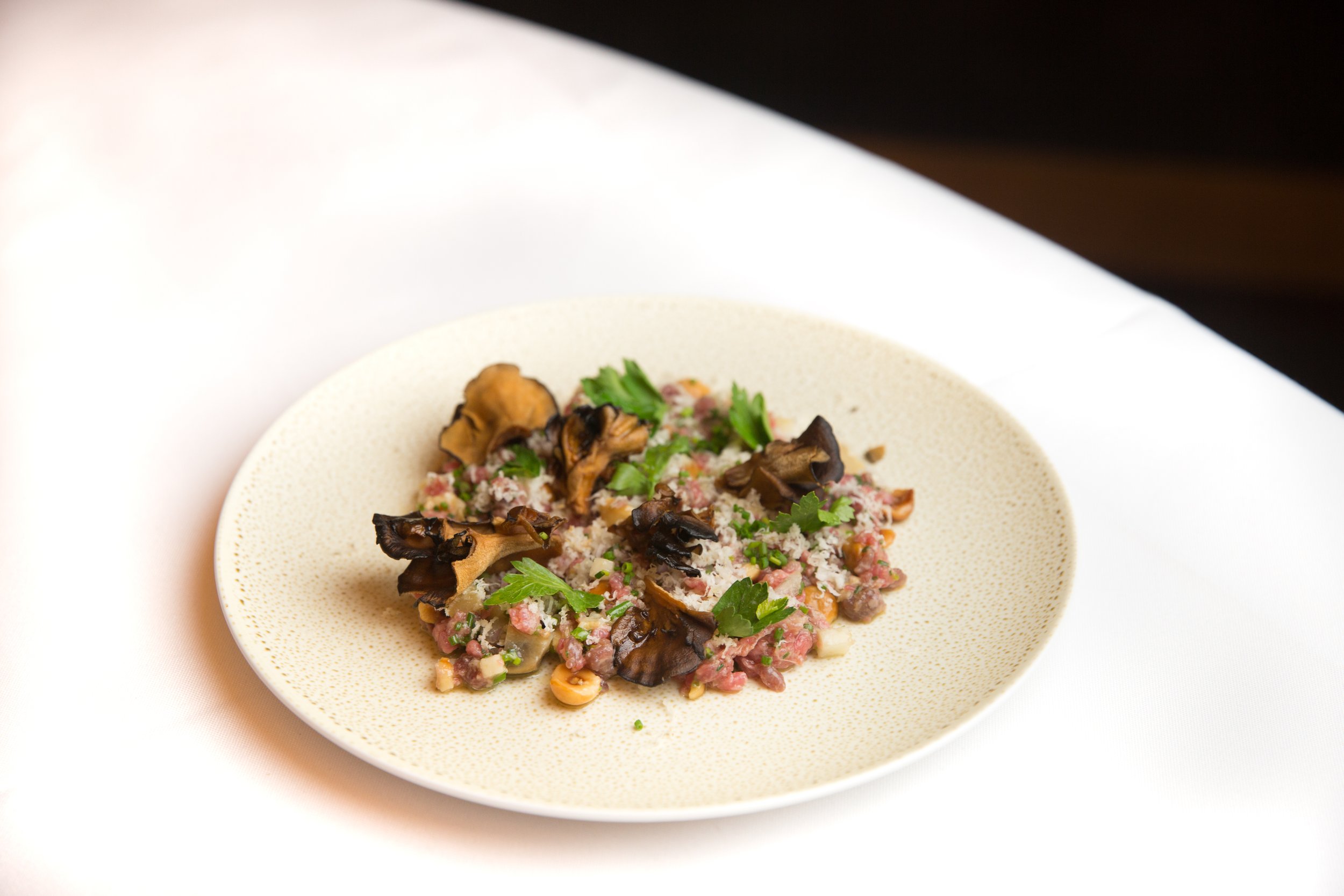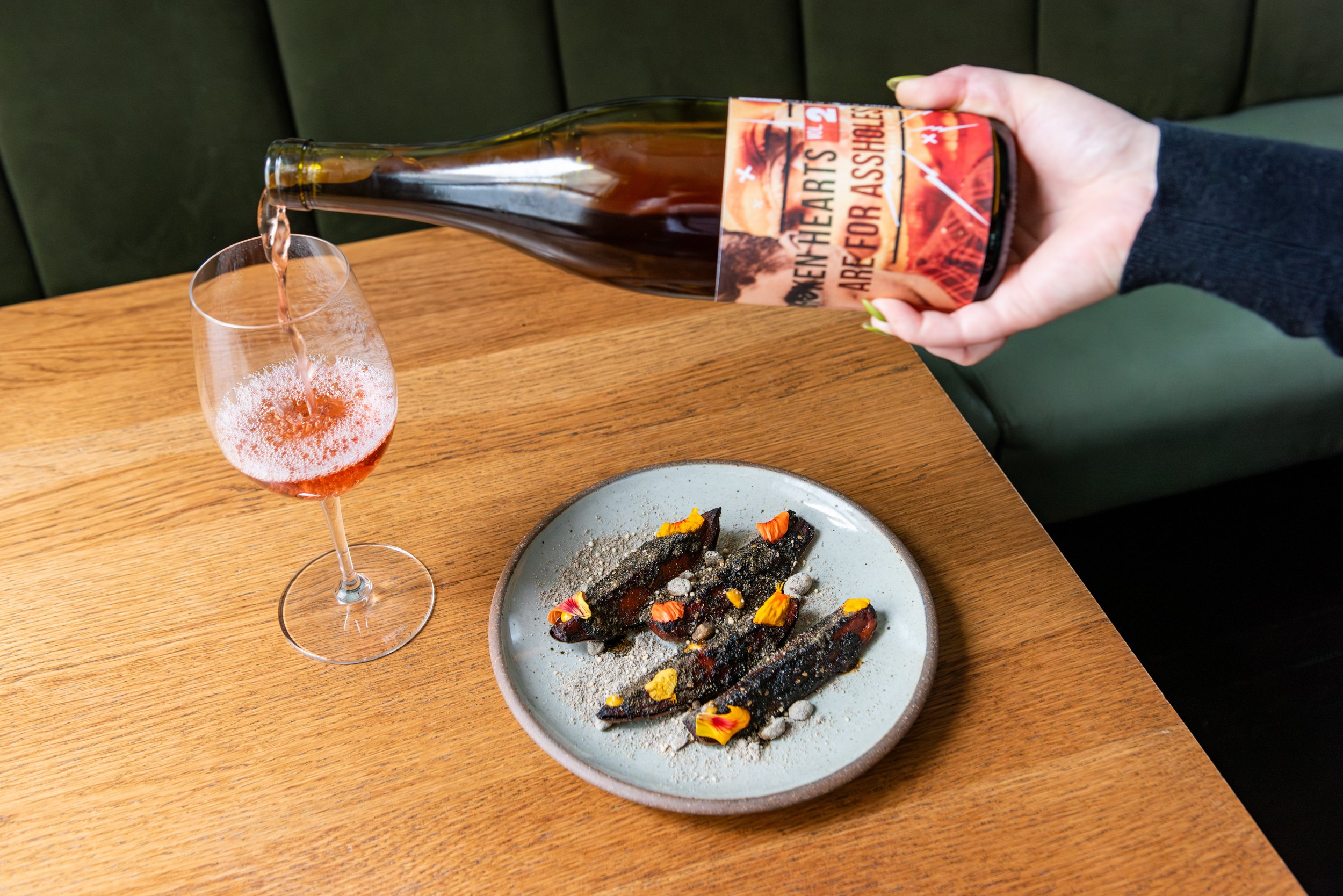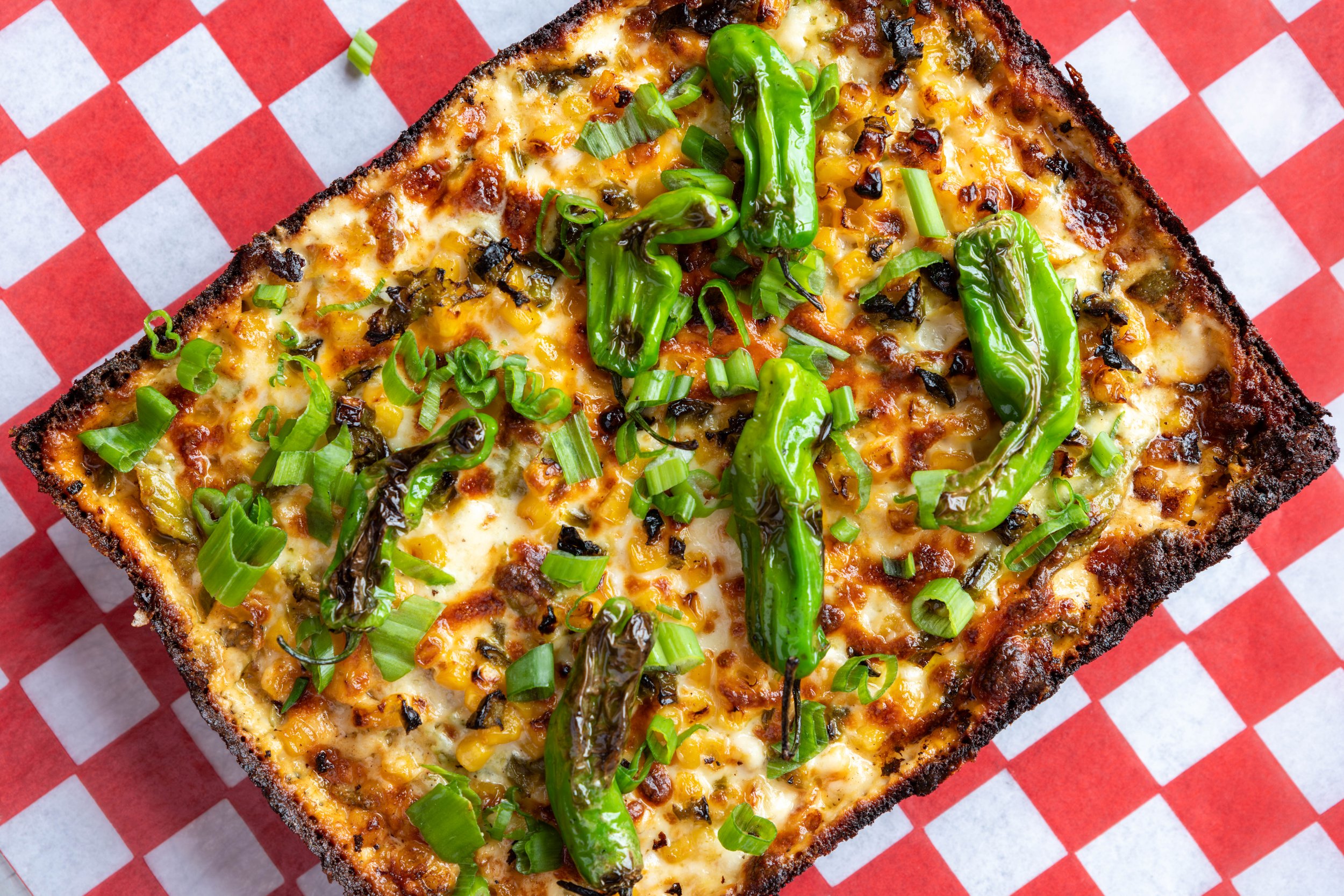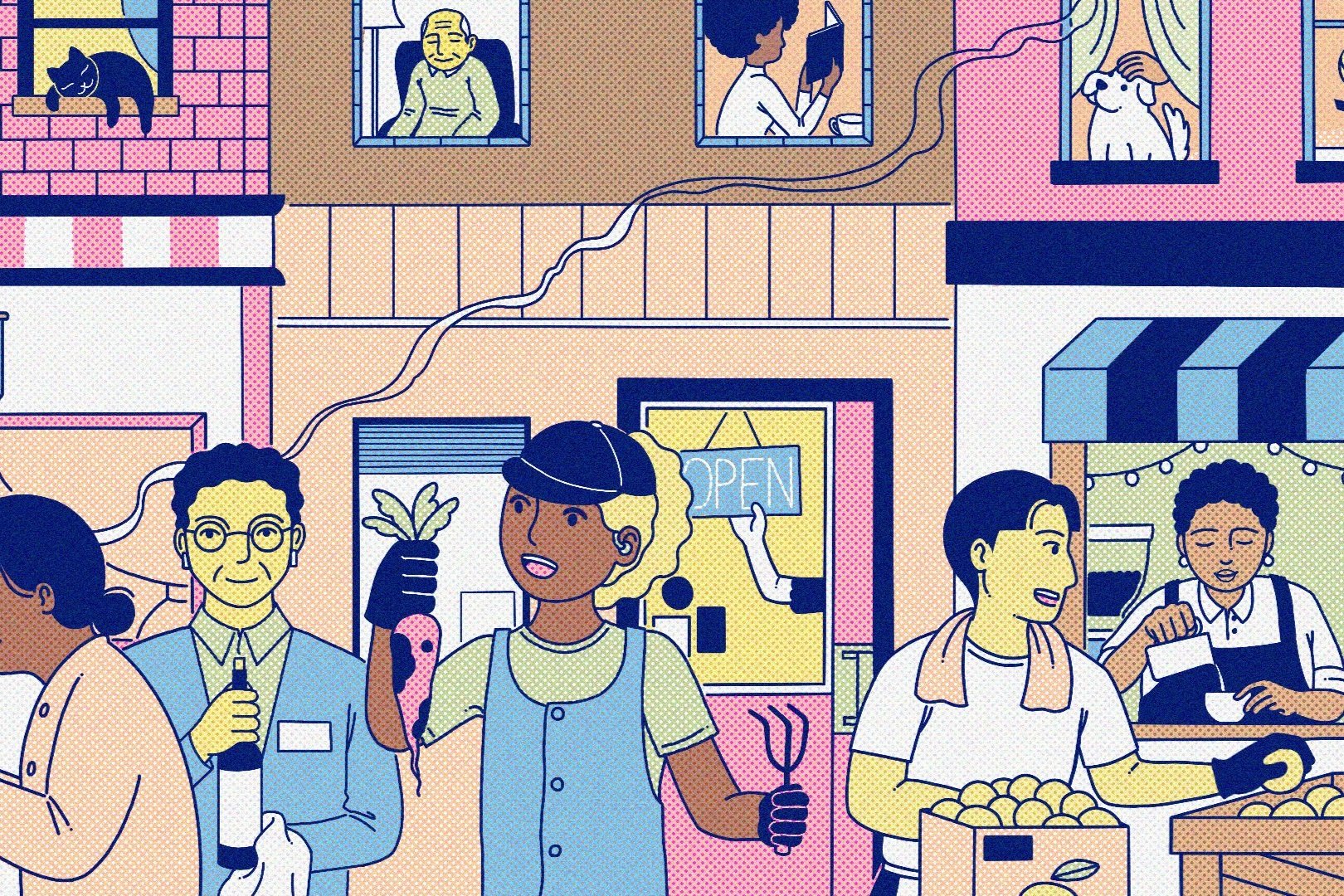Philly’s Cook Pipeline
Chef John Patterson’s internship program benefits the whole city.
Fork's Duck Breast, Confit Duck Legs and Duxelle in Brik Pastry, Fig-Red Wine-Date Molasses Jus, and Swiss Chard
John Patterson is driving back from the Culinary Institute of America in Hyde Park, trying to beat a snowstorm. He’s following a route that has become familiar to him after taking control of the externship program at Fork, the Philadelphia restaurant where he has run the kitchen since May 2016.
As an alum of New York’s Gramercy Tavern, Patterson was inspired by the colossal amount of training and support given to externs at the Michelin-starred eatery. Patterson has made it his mission to be the face of Fork’s program, from start to finish.
“I go up to the schools for the externship/career fair, then I stay for the interview the following day, and when they come down for the stage, I’m the first person they see,” says Patterson. “So there’s continuity in who they’re reporting to, and also a familiar face. Everyone remembers that first day of school, when you’re young—it’s, like, terrifying. I hope this eases the transition.”
Externs from top culinary programs typically stay for 15 consecutive weeks and work a minimum of 600 hours (according to CIA guidelines). For the first four weeks, students arrive at the restaurant at 10am, and Patterson teaches them the basics of working garde manger before the cooks come in for dinner service at 1pm. After those four weeks, they transition into the PM rotation and work dinner service alongside the cooks until close. Patterson developed his extern curriculum, which required a fair amount of paperwork and approval from the CIA. Fork does not provide extern housing, but they do pay—a benefit that not all externships offer.
chef john patterson
Dry Aged Beef Tartare, Porcini Confit, Toasted Hazelnuts, Horseradish, Maitake Mushrooms, Shallots, Pickled Mustard Seeds, and Kohlrabi at Fork
Working with 18 to 20 year olds, most of whom have never had a full-time job, does come with its own set of challenges. “It’s a bit like parenting,” says Patterson. “They deal with all of the things you go through in life at that age, but in the kitchen.”
Three out of 10 externs that Patterson worked with in the past two years have already returned to Fork as line cooks. By attracting and actively recruiting talent to Fork, when those young cooks decide to stay in Philadelphia, it makes the whole city a better place to eat. Consider it Patterson’s contribution to solving the perpetual labor crisis.
“Even if my externs don’t come to work with me after graduation, I want to train them so well that if they interview at another restaurant, management goes, ‘Oh man, we have to hire this person,’” says Patterson. “I feel like it’s worth my time to go in three hours early to develop these cooks because I love mentoring, I love being able to teach, and I love the value of seeing someone realize that they’re getting it and that they’re growing. But there is a cost. It takes a lot of time, a lot of energy. But to me, it’s worth it.”

